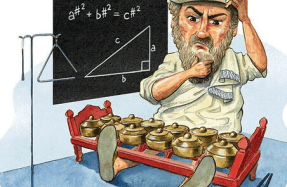

It’s not really the done thing to go into fan mode during an interview. You’re there to do a job, so keep it professional – no autograph requests, no selfies. On this occasion, however, I’m going to make an exception. Midlife Choirsis, the choir I sing with in Cheltenham, has been learning one of Eric Whitacre’s pieces. Would he be kind enough to film a quick message for them? ‘Hey gang! Eric Whitacre here!’ he beams into my phone. ‘Midlife Choirsis – that’s the best name I’ve ever heard! Thank you all so much for performing Seal Lullaby…’ Why do I get the feeling he might have done this sort of thing once or twice before?
Conveniently, is on , Voces8’s new album of Whitacre’s music, about which we’ve to come to have a chat atHowever, while the is indeed a classic example of the short, dreamy pieces that have made the 53-year-old Nevada-born composer the toast of countless choirs and listeners across the globe, there is a much weightier affair that I want to ask him about. Taking the lion’s share of the same disc is , a 50-minute work for voices, cello and piano. By far the longest piece he has ever written, it also relives a time of sorrow.




